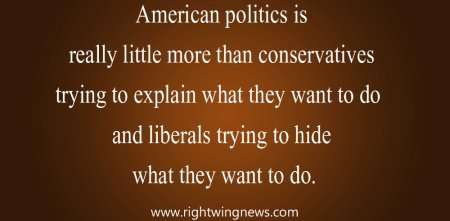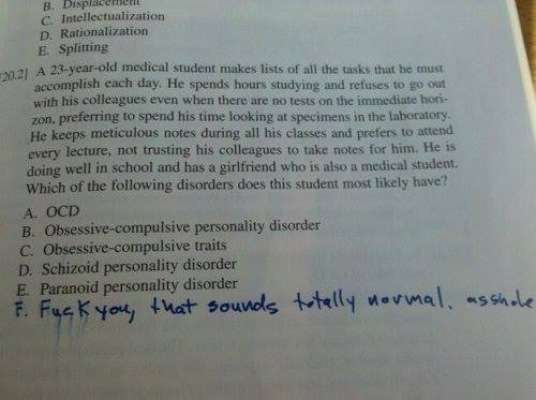Can we find common ground between conservatives and liberals? Perhaps I’m looking at it through rose colored glasses, but I believe it is possible. I believe, if you can push past all the cloudy rhetoric and achieve clarity of understanding of all the ideas, inflammatory and otherwise, you’d eventually be able to define them, therefore to plot them out. If you can define and plot out the ideas, you can define and plot out the strands of association among them; these strands of association, now and then, would straddle the ideological divide. At least, that’s my hope. I’m just not too sure about it. Sometimes I have more doubts about it than other times.
The root of the unified common ancestry among all these hierarchically related ideas, in my mind (in its most optimistic state), would be one of:
The struggle between good and evil is never-ending; nevertheless, I wish to be a force for good.
This is not as simple a thought as you might expect in the case of the root node of an idea-tree. In fact, it is measurably complex: The word “nevertheless,” which manifests something of a hairpin-turn. And in this case it is a painful one, loaded up with angst. You might restate it as “I am defining the purpose of my entire existence here, and in doing so I have voluntarily subjected myself to a struggle, the end of which I will not see.” It takes maturity to think such a thing. And humility. So there is hope, if this is indeed a universal statement…
 So let’s test that. Is it universal? Let’s examine who we might have left out. Well — nobody, really. We’ve left out The Joker from The Dark Knight, and people like that. “Some men just want to watch the world burn,” Alfred the Butler said. And we’ve left out the people who just don’t give a hang. So we’ve excluded those who wish to do harm, and those who have no opinion; we’ve captured everyone else. You know what? I’ll accept that, I think that’s alright. We have effectively limited our scope to those who are capable of possessing an ideology. Those who have it within them to achieve passion one way or another, and are sane.
So let’s test that. Is it universal? Let’s examine who we might have left out. Well — nobody, really. We’ve left out The Joker from The Dark Knight, and people like that. “Some men just want to watch the world burn,” Alfred the Butler said. And we’ve left out the people who just don’t give a hang. So we’ve excluded those who wish to do harm, and those who have no opinion; we’ve captured everyone else. You know what? I’ll accept that, I think that’s alright. We have effectively limited our scope to those who are capable of possessing an ideology. Those who have it within them to achieve passion one way or another, and are sane.
The struggle between good and evil is eternal, but I wish to be a force for good.
Somewhere underneath that on our idea-pedigree, which we can imagine duct-tape to one wall of a room on a giant sheet of butcher paper or something, there must be a fissure that divides the conservatives from the liberals. Is it God? No, I don’t think so; at least, His involvement must be complex. There are faithful people who end up being liberals, somehow, and there are atheists who end up being conservative. These are outliers, in the minority, but they are significant and worthy of examination. What do the conservative atheists have in common with the conservative faithful? What do the liberal faithful have in common with the liberal atheists/secularists?
God keeps trickling back into it, it seems to me. To me, it’s real simple: God put us here, as part of some Grand Design, which means God must want some things to happen and other things not to happen. “Good” would therefore be whatever God wants to happen, and we have a clue what that might be provided we accept the premise. If it’s something that makes Creation an entirely futile exercise, it must not be good.
The few conservative atheists there are out there, have the maturity to work with the hypothetical: If God were real, which of course He is not, what would He want? And they end up agreeing with us where it matters.
Here is your fork-in-the-road according to which liberalism may be defined: Good and evil may be distinguished by way of revulsion. Pious or not, they lack humility. “That’s wrong!” They say this; they have no question about it, no reservation. “This is on (your/some guy’s) hands!” Absolute certainty. Not a doubt in the world. Must be nice.
Morally, they make all the mistakes that might be expected of a “draftsman” who draws lines by free-hand, where a straightedge is required. This is an apt metaphor; this is precisely what they are doing. Now here’s a great example of a liberal freehand-drawing draftsman flubbing it up, scribbling where a straightedge is needed: Let us say I make, or some other white straight western protestant male makes, a rape joke. Oh, how awful! How terrible! No condemnation too severe! No punishment can exceed the crime! But outside of the West, Muslims force fifteen schoolgirls to burn to death in a burning school, because the schoolgirl’s faces were not covered. Where is the condemnation? By now, it’s been over a decade. We know how conservatives respond to this and we know how liberals respond to it. You’ve got a long wait before a liberal has much to say against it. Better tune into right-wing “hate” talk radio if you even want to find out about it.
In fact, writing broadly about it, that is by far liberalism’s biggest embarrassment in this modern age: It cannot lower itself to condemn as evil, acts that clearly are. Not if those acts happen to be politically correct, or committed by those who are members of protected classes…or merely outside the unprotected class of western-straight-white-American-male. It all comes back to that definition of where good ends, and evil begins. The Movement always has to win out, so if it’s helped along by something recognized by conservatives — and centrists — as something terrible, well you know…there’s always a more open-minded, complex, “nuanced” way to look at it that changes everything. So don’t be too quick to attack evil, because you might be attacking The Movement. Ask lots of questions first. And try to change the subject. Liberalism is great for acting superior and scolding people for the little things, but it sucks when evil has to be attacked. That isn’t its bag, baby.
So complex is this exotic way of looking at the situation, that lets evil off the hook, that even they who claim to understand it can’t explain it. Not to us slope-headed knuckle-dragging retro-sexual morons anyway. But I think everyone understands what’s really going on here: It’s The Movement. It must always win. To denounce things that help The Movement, or share common enemies with The Movement, would be anathema. Anyone caught on record doing so, would be kicked out of the club.
Looking past the disagreements about how to define good and evil; back to this unified-common-ancestry humility, of saying “I wish to press the attack for good, even though I shall not see the end of the struggle between good and evil.” A strange thing happens here. Our friends the liberals seem to understand that the struggle between good and evil is enduring, it was here long before they were here, and will still be raging after all our bones have turned to dust. I think they get that on some level. But they can’t consciously admit it. The timeless battle will always be settled once and for all, today or early tomorrow. We’re always right on the brink, always in the throes of some Glorious Revolution that’s going to settle it forever. There is no antecedent action. No failed experiments engaged in times past, from which lessons might be learned. Ever.
That part’s just creepy. History always began this morning. But the “evil” has been dragging on, forever. How can we be concerned about problems that are this much older than all of recorded time? I do not know; they do not say. And how does some guy, alive now, become entitled to “reparations” earned while slaves were being oppressed two hundred years ago — slaves who share only his skin color, but not his actual ancestry? I don’t know that either. They won’t explain that either.
The whole formulation has some pretty obvious problems. The kind of problems you have when you scribble with freehand, on a blueprint, the kind of line that is supposed to be drawn with a straightedge.
Update 6/8/13: Not my best work here. There arose a great confluence of events to keep me from writing competently — network packet download slowed down to near non-functionality, mysteriously, and the wife walked in with pizza and wings for dinner, and I noticed two of my three laptop batteries died all of a sudden — and my attention to detail was tested rather viciously, along with my ability to find Internet links. I ended up not quite taking this through the entire range of topics I had mentally chosen for it.
There exists in our country’s recent history a certain Supreme Court justice who I think may have been handed a raw deal in the remembrance of his name, which I have endeavored not to use for this purpose, but I’ve been repeatedly taught that this concept is an important one and if his name could not be used to describe it, we’d have to go flailing about for a different name. Potter Stewart, concurring with the majority opinion in Jacobelis v. Ohio (1964), made an unfortunate comment:
I have reached the conclusion, which I think is confirmed at least by negative implication in the Court’s decisions since Roth and Alberts, that under the First and Fourteenth Amendments criminal laws in this area are constitutionally limited to hard-core pornography. I shall not today attempt further to define the kinds of material I understand to be embraced within that shorthand description; and perhaps I could never succeed in intelligibly doing so. But I know it when I see it, and the motion picture involved in this case is not that.
You could make a compelling case, with much solid evidence to supply to fortify your argument, that this was not quite so much a tip-off about the insulated and aristocratic ignorance of Justice Stewart, or of the Supreme Court during the Earl Warren years, but merely a record of the turning-point of our national discourse about obscenity laws, and of criminal and civil law as a whole. Should our laws be objective and definable?
This is where liberalism becomes most destructive toward society’s objective of running right and running well: The “Potter Stewart” way of deciding right versus wrong, the “I know it when I see it.” With God The Creator and Giver of Laws entirely removed from the situation, not even allowed in as a hypothetical exercise the way the conservative atheists will allow Him in, and the freehand-scribbling where a straightedge is required — everything is reduced to this Potter-Stewart, know-it-when-I-see-it thinking.
It leads to nitwits like Bill Maher, asserting unilateral and autocratic influence over what the rest of us are to think about things like the Benghazi scandal, while simultaneously confessing they know nothing about it. It leads to the Attorney General’s apparently lying to Congress, saying things like “…that is not something that I’ve ever been involved with, heard of, or would think would be a wise policy.” It leads to our current president showing, at times, dangerous indecision about important things which even His disciples and fans cannot defend.
The President, no doubt enjoying once again escaping the homeland for his Asian visit, bristled when asked questions with regard to his Afghan policy. Or is better stated his lack of an Afghan policy.
When the Associated Press’s Jenifer Loven asked the President ‘Can you explain to the people watching and criticizing your deliberations what piece of information you’re still lacking to make that call’, the President showed his obvious displeasure. Could it be that the President lacks the “cool” to deal with anything but softball questions?
The Presidents non response, ‘Which respect to Afghanistan Jennifer, I don’t think this is a matter of some datum point of information I am waiting on. … Critics of the process … tend not to be folks who … are directly involved in what’s happening in Afghanistan. Those who are, recognize the gravity of the situation and recognize the unimportance of getting it right’.
The Presidents response begs the questions; 1) You don’t think, (this a matter of some datum point), Mr. President, shouldn’t you know by now? 2) The folks on the ground have given you their recommendations Mr. President. You and your political cronies have had more than ample time to make a decision. 3) All of America, (not just those directly involved in the situation), knows the gravity of the situation and we also know your Administrations dithering is costing American lives as well as your credibility.
This was an exchange that took place in mid-November, 2009; President Obama had spent the preceding ten months deciding the matter, and if His comments can be taken seriously, with all of the data He needed to get the matter decided.
And it leads to presidents unable to govern, as they are stuck in campaign mode. It leads to the absurd rationale that if you take a month to decide something, taking yet another month or two must mean you’re deciding it even better, even if there is no particular “datum” emerging during the extra time to actually make the decision any better.
 There is a long boring passage in the first part of Atlas Shrugged, in which a train is taken out over the first length of railway made with Rearden Metal. A passage which, perhaps against their better judgment, the producers of the movie labored to bring to the screen in its entirety rather than trying to abbreviate it, or expunge it altogether. In both forms, book and visual, it’s very difficult to figure out where the author is intending to take this since all that’s being shown, or written about, is a bunch of people riding on a train. The movie form is fun to watch, somehow; the book form of this scene is exquisitely boring. The explanation of what was intended, I think, ties into the problem with these “Potter Stewart” thinkers who attempt to decide things while elegantly leaving the undefinable undefined:
There is a long boring passage in the first part of Atlas Shrugged, in which a train is taken out over the first length of railway made with Rearden Metal. A passage which, perhaps against their better judgment, the producers of the movie labored to bring to the screen in its entirety rather than trying to abbreviate it, or expunge it altogether. In both forms, book and visual, it’s very difficult to figure out where the author is intending to take this since all that’s being shown, or written about, is a bunch of people riding on a train. The movie form is fun to watch, somehow; the book form of this scene is exquisitely boring. The explanation of what was intended, I think, ties into the problem with these “Potter Stewart” thinkers who attempt to decide things while elegantly leaving the undefinable undefined:
There are practical reasons why deciding things, particularly very important things, must involve definitions. The whole point to the Rearden-Metal-train-track passage is that if there was a flaw in the metal itself, or in the way it was joined together, or in the spread or in the span or in the pouring of the heat or in the driving of the spikes or in the wheels of the locomotive — all those aboard would be killed and there wouldn’t be a moment of warning. These were the people who were responsible for getting the railroad built. That was the point of the scene. It was about how to think about things, how to build a building knowing you’ll be the first guy to walk on the top floor of it. How to build a car, knowing you’ll be the first guy to drive it. How to build an elevator car, knowing you’ll be the first sucker to ride in it.
These Potter-Stewart-thinkers understand, on some level, that this is the type of challenge that awaits them and they have been grossly unprepared, throughout their entire adult lives, for such a challenge. They don’t know how to decide things that really matter, and they know they don’t know. They don’t really know how to decide things, where defining is a prerequisite to deciding — so all they can do is dawdle. If you ask them about it, they get peevish and churlish about it. And then you become the problem, since you asked the question they didn’t want asked.
They know what they want everyone to think. They know what decisions they want the other guy to make. When it comes to matters of “What do you do here, in order to create the result you want,” they haven’t got a clue. This is not so much an aptitude as it is a lifelong discipline. You have to learn this stuff in childhood, or at least, before you become too vocationally enamored of a more artistic, freehand, right-brain kind of thinking. You have to learn to stop playing to the crowd, long enough to work with apparatus and machinery — working in an environment in which stimulus A produces response B, and the skilled operator learns how to understand all that, and then figures out how to manipulate it toward his intentions, objectives and desires.
These are the people who have all of the influence over us, and are craving more — but “influence” is a verb as well as a noun, and they haven’t learned to do it. And yet the lust for the intangible noun, in ever greater intensity and in ever greater coverage, remains. How our guns are to be built, what kind of tax we have to pay on our ammunition, how our health care should work, how many hoops we have to jump through to get our tax-exempt status for our advocacy groups, what kind of cell phone chatter makes us potential terrorists, how much carbon we should be allowed to put in the atmosphere — and we should be afraid, very afraid. Because these are people drawing up fancy blueprints for how we are to live our lives. But they don’t know how to use a straightedge. They’re thoroughly accustomed to drawing freehand, and they don’t know any other way to do it. They can’t, or won’t, learn any other way.
What’s even worse is, they’ve been told every doodle they’ve made, going all the way back to finger paintings in Kindergarten, is a work of art on par with Picasso, Rafael or Rembrandt. Their desire to do “good” is, I think, sincere. But it doesn’t really matter, because they’ve never ridden a locomotive on a track they designed or laid themselves, and they don’t understand failure is possible.











 So we have two things here, being described with one word, leading to confusion. One thing is an effort to measure things, validate those measurements, and logically infer from all that the nature of the world in which we live. The other thing is a bureaucratic thing, an effort to build a consensus. In the first of those two things, measurement is the point, and apart from that, the inference process; in the second, it is the consensus itself that is the point. We should not be mixing up these two definitions of “science” because they are not adequately similar, their differences are meaningful — hence the confusion. As anyone who works in statistics knows, a statement of the form “everyone within set X does Y” is only as good as the definition of the set X.
So we have two things here, being described with one word, leading to confusion. One thing is an effort to measure things, validate those measurements, and logically infer from all that the nature of the world in which we live. The other thing is a bureaucratic thing, an effort to build a consensus. In the first of those two things, measurement is the point, and apart from that, the inference process; in the second, it is the consensus itself that is the point. We should not be mixing up these two definitions of “science” because they are not adequately similar, their differences are meaningful — hence the confusion. As anyone who works in statistics knows, a statement of the form “everyone within set X does Y” is only as good as the definition of the set X. 
 The problem is that the
The problem is that the 

 However, much of the interpersonal confrontations are now also taking place online. People no longer feel that they have a need to meet in person to discuss their differences; they can now troll each other online. People are using the Internet as a shield, hiding behind IP addresses in order to speak their minds. The Internet acts like beer-muscles. It makes you believe that you are stronger than you actually are, making you more aggressive. There is nothing wrong with being aggressive when circumstances require it.
However, much of the interpersonal confrontations are now also taking place online. People no longer feel that they have a need to meet in person to discuss their differences; they can now troll each other online. People are using the Internet as a shield, hiding behind IP addresses in order to speak their minds. The Internet acts like beer-muscles. It makes you believe that you are stronger than you actually are, making you more aggressive. There is nothing wrong with being aggressive when circumstances require it. That hackneyed cornball plot about James Bond discovering an orbiting laser satellite that will destroy all life on Earth, shrugging off his continual vodka-martini stupor and rousing up some momentary concern about his fellow human beings, to disable the radar jamming device so our brave military men can find it, and get in a huge “Thunderball” good-against-evil brawl, and a final mano-a-mano confrontation with the bad guy…that’s the one thing missing not only from the movie franchise, but from the male vision within our culture. For that reason, although I do like the Daniel Craig movies, I’d rather see James Bond shooting down poison globes with a laser in a space shuttle, than playing “Home Alone” with the bad guys at his old family estate.
That hackneyed cornball plot about James Bond discovering an orbiting laser satellite that will destroy all life on Earth, shrugging off his continual vodka-martini stupor and rousing up some momentary concern about his fellow human beings, to disable the radar jamming device so our brave military men can find it, and get in a huge “Thunderball” good-against-evil brawl, and a final mano-a-mano confrontation with the bad guy…that’s the one thing missing not only from the movie franchise, but from the male vision within our culture. For that reason, although I do like the Daniel Craig movies, I’d rather see James Bond shooting down poison globes with a laser in a space shuttle, than playing “Home Alone” with the bad guys at his old family estate.

 So let’s test that. Is it universal? Let’s examine who we might have left out. Well — nobody, really. We’ve left out The Joker from
So let’s test that. Is it universal? Let’s examine who we might have left out. Well — nobody, really. We’ve left out The Joker from  There is a long boring passage in the first part of Atlas Shrugged, in which a train is taken out over the first length of railway made with Rearden Metal. A passage which, perhaps against their better judgment, the producers of the movie labored to bring to the screen in its entirety rather than trying to abbreviate it, or expunge it altogether. In both forms, book and visual, it’s very difficult to figure out where the author is intending to take this since all that’s being shown, or written about, is a bunch of people riding on a train. The movie form is fun to watch, somehow; the book form of this scene is exquisitely boring. The explanation of what was intended, I think, ties into the problem with these “Potter Stewart” thinkers who attempt to decide things while elegantly leaving the undefinable undefined:
There is a long boring passage in the first part of Atlas Shrugged, in which a train is taken out over the first length of railway made with Rearden Metal. A passage which, perhaps against their better judgment, the producers of the movie labored to bring to the screen in its entirety rather than trying to abbreviate it, or expunge it altogether. In both forms, book and visual, it’s very difficult to figure out where the author is intending to take this since all that’s being shown, or written about, is a bunch of people riding on a train. The movie form is fun to watch, somehow; the book form of this scene is exquisitely boring. The explanation of what was intended, I think, ties into the problem with these “Potter Stewart” thinkers who attempt to decide things while elegantly leaving the undefinable undefined: